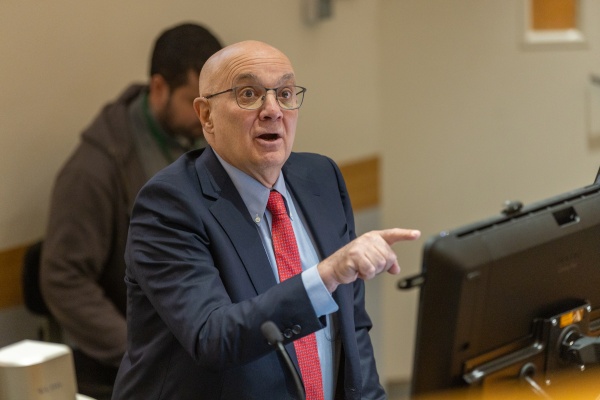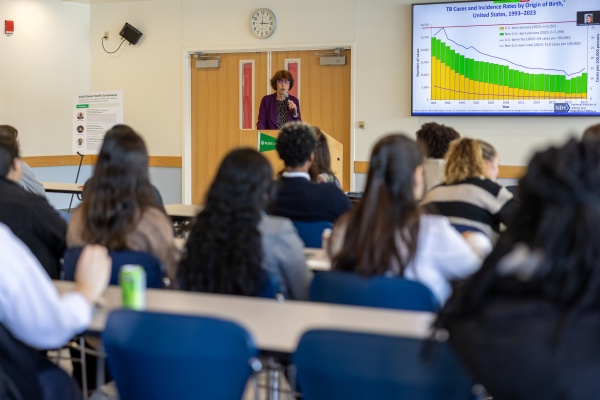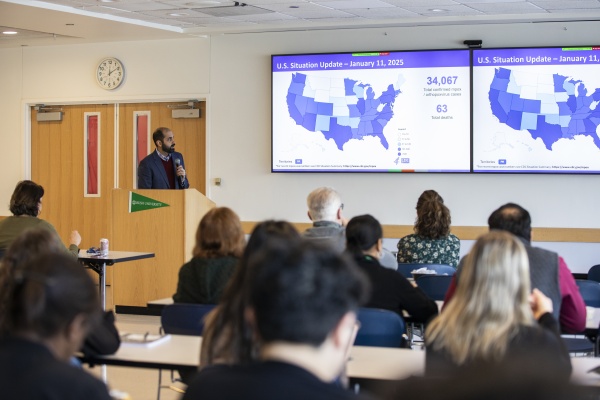2025 Global Health Symposium Presentations
Exploring the re-emergence of infectious disease and implications for practice and policy.
This year's theme is selected by the Rush Students for Global Health ensuring relevant and inspiring topics presented by a panel of experts in the infectious disease field.
View the event flyer
March 24-27, 2025

March 24
The law of Unintended Consequences and the Emergence of Mpox
Bradley Stuart Hersh, MD, MPH, FACP
Independent consultant in Global and Population Health
Former CDC Liaison Officer, World Health Organization

March 25
Curbing the TB Pandemic: Challenges and Opportunities
Emily Erbelding, MD, MPH
Director of the Division of Microbiology and Infectious Diseases, National Institute of Allergy and Infectious Diseases

March 26
The Global Threat of Emerging Infections: Lessons from Mpox and Other Pathogens
Aniruddha Hazra, MD
Director of Infectious Diseases Fellowship Program and Associate Professor for the Section of Infectious Diseases and Global Health, University of Chicago
Director of STI Services, Chicago Center of HIV Elimination
March 27
Trainee Research Day 2025 Poster Viewing and Award Ceremony
Presentations highlighting trainee accomplishments and cutting-edge research happening at Rush.
A Health Equity Award granted to the student whose poster demonstrates innovation and impact in reducing health care disparities.
